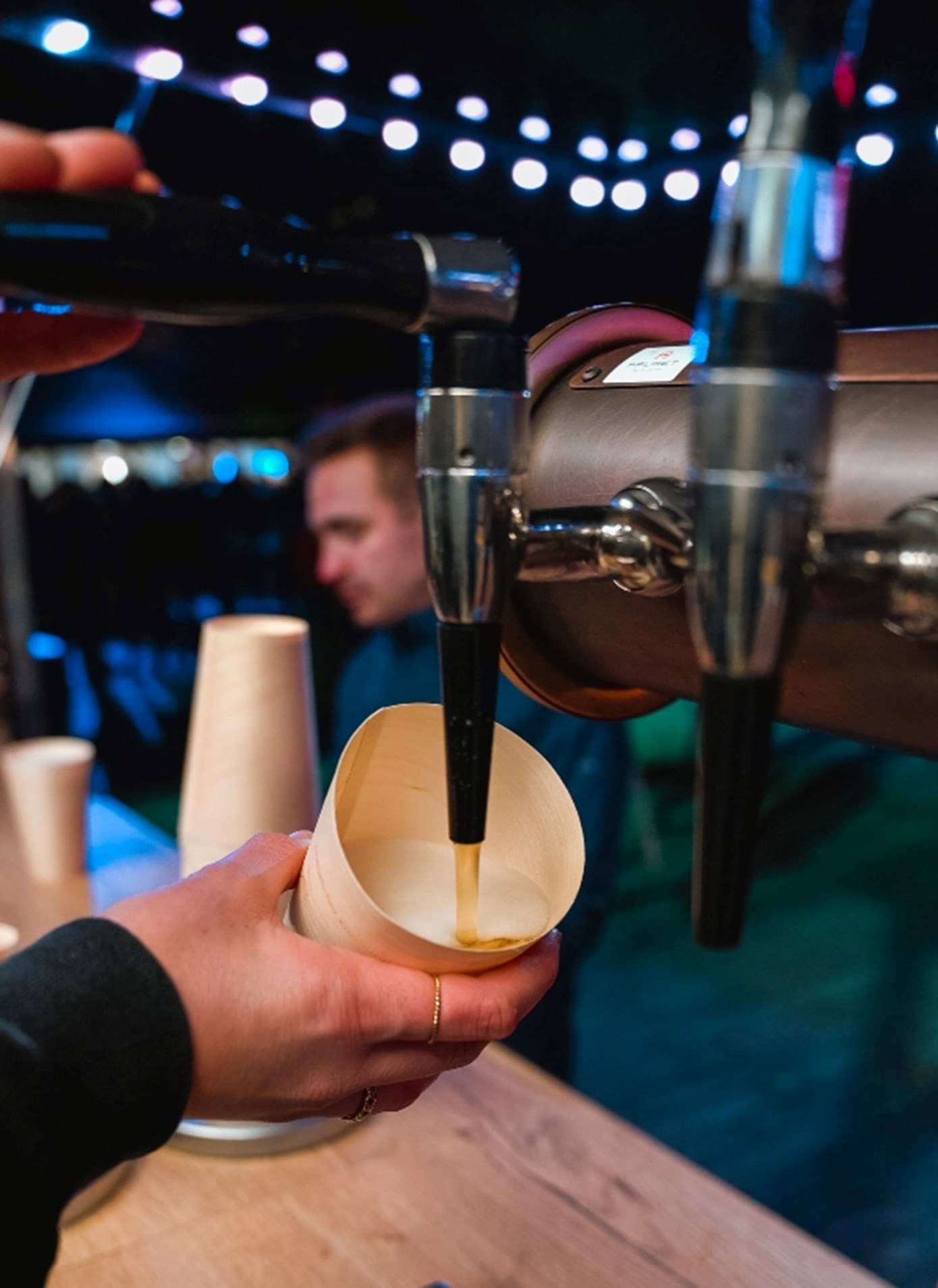
 Drinking from wooden cups
Drinking from wooden cups
Soon, music and sports enthusiasts in Switzerland will be drinking beer from renewable, compostable wooden cups.
In Switzerland, Feldschlösschen, our Swiss business, has teamed up with Swiss start-up Arboloom to trial innovative wooden cups as a potential alternative to the millions of single-use plastic cups vendors use to serve beers at festivals, concerts and sports events.
The cups are made out of thin veneer, which requires very little processing as it is cut directly from the trunks of trees – a renewable resource. After use, the cups can be returned to the environment through composting, recycled into other products or incinerated as a renewable fuel source.
Across their lifecycle, these wooden cups have a carbon footprint three times smaller than single-use plastic cups.
“As the leader in the Swiss beer market, it is great to see that Feldschlösschen is partnering up with sustainable start-ups to get rid of one-way plastic by using locally produced, sustainable beer cups."
- Natalia Röthlisberger, CEO, Arboloom Cup AG

ZERO Packaging Waste
Within our ZERO Packagaing Waste initiative, we are working with suppliers on innovations that support our ambitions by reducing material use and introducing more renewable, reusable and recyclable packaging.
Customer perception and endorsement play a pivotal role in our ability to deliver sustainability benefits on a larger scale.
As part of the wooden cups trial, a survey involving 700 participants revealed a substantial preference of wooden cups over single-use plastic for their next beer, with a preference rate six times higher for the wooden cups.

Thirsty for more?

Deposit return scheme launched in Latvia
On 1 February 2022, a national deposit return scheme was launched in Latvia for the first time. By the end of the year, 8,650 tonnes of packaging – around 228 million items – had been returned for reuse or recycling.

Inspiring support for International Women's Day across Carlsberg
Everyone at Carlsberg Group plays a part in helping to achieve our target of 40% women in senior leadership roles across all markets by 2030. We believe that awareness is crucial to encourage people to advance gender equality through their areas of influence.

Creating an innovative solution for reducing packaging waste
As we look for more ways to reach ZERO Packaging Waste in our operations, Carlsberg Poland started trialling a new multipack format in 2024. It is designed to reduce the need for shrink film on pallets transporting our beverages.
Central & Eastern Europe and India
-
Azerbaijan
-
Belarus
-
Bulgaria
-
Canada
-
Croatia
-
Estonia
-
Greece
-
Hungary
-
India
-
Italy
-
Kazakhstan
-
Latvia
-
Lithuania
-
Serbia
-
Ukraine

